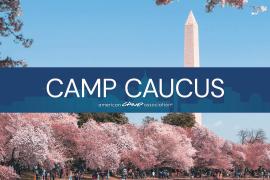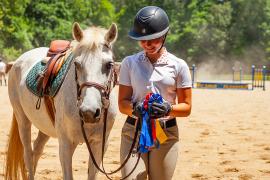Offering your camp facilities to retreat and rental groups can increase community engagement and be an important source of revenue during your off-season — especially amid the operational challenges of COVID-19. But renting out your facilities and services during the pandemic also necessitates careful consideration and taking steps to mitigate liability and other risks associated with the virus. As Rick Garcia, executive director of Catholic Charities CYO said in a recent ACA Now post, “There is NO one size fits all in COVID operations and don’t assume anything.”
Recommended Policies and Procedures
Alexis R. Spoon, ARM, CLCS, area assistant vice president, and Darow Milgrim, director of national independent schools and camp programs, at Gallagher, an insurance, risk management, and consulting firm, suggest the following:
- Consider transferring risk through contract or waiver to ensure that your camp is not held liable for spreading or visitors contracting COVID-19. Consult your legal counsel for appropriate contract terminology.
- The retreat/rental group needs to fully defend, indemnify, and hold harmless your camp from any and all injuries resulting from COVID. Insurance requirements should say “including coverage for communicable disease” or “no exclusions for viruses.”
- The retreat/rental group needs to have a waiver of subrogation on all policies including workers’ compensation, so insurance claims do not become the camp’s responsibility.
- Follow state and local guidelines when it comes to mask wearing and social distancing at the minimum. We recommend that all visitors wear masks and maintain six feet of distance between other visitors.
- Make sure policies and procedures are adjusted to allow for proper cleaning throughout the retreat/rental groups’ stay, as well as in between groups. Make sure to specifically include in your contract who is responsible for cleaning — your camp or the rental group.
- Include in your contract that if the retreat/rental group does not follow your policies and procedures agreed to by both parties, they will be removed from the premises immediately. Make sure to include the financial consequence of this in your contract.
- The retreat/rental group needs to comply with all CDC guidelines for camps / group gatherings. Include in your contract the basic protocols required of groups on your property.
Jared Knight, associate director at Aspen Grove Family Camp, reminds camps, “A well-written contract, expectations, and a guide that clearly defines what the camp will provide and what the rental group will provide is critical.”
Kurt Podeszwa, director for Camp For All, a barrier-free camp that works in partnership with other nonprofit organizations to enrich the lives of children and adults with special needs and their families, offers this advice for working with other groups: “I like the idea of prework and preteaching; it’s part of being good at youth development. Partner groups and all involved are sent information in advance, which they are required to acknowledge. We also set up a Zoom meeting prior to groups arriving at camp to go over policies and procedures.”
When to Say No
Gallagher recommends that any retreat or rental group refusing to meet any of the policies and procedures you have laid out should not be extended a contract to operate on your property.
Gallagher Spoon and Milgrim add, “If the retreat/rental group you are serving is outside of normal exposures, make sure you receive written confirmation that this change of operations is approved by your insurance carrier. If not approved, any claims arising from this stay could be excluded.”
Additional Considerations
Be aware that individual states differ on workers’ compensation policies related to COVID-19. Should an employee on premises have the virus, “some states are taking the approach that the employer needs to prove the employee did not contract the virus at work,” say Spoon and Milgrim, “while others are maintaining that the employee must prove they did contract the virus at work.”
With regard to your insurance coverage when renting to retreats and other groups, Spoon and Milgrim say, “Talk with your broker to make sure your insurance will respond to the activities you are engaging in with these groups. In some instances, these may not have been previously disclosed to your carrier.”
Insurance is also an important consideration for the retreat/rental groups using your facilities. They should be contractually required to provide indemnification and insurance clauses, including additional insured and waivers of subrogation, in favor of your camp. If you are renting to singular family groups who do not have their own insurance policies and are unable to name your camp as an additional insured, consider purchasing a special event policy for added protection.
David Shore, senior scientist at Environmental Health & Engineering, Inc., stresses that camps should follow the appropriate regulations for use of their property/facilities, either as a camp or by rental groups, set by their state and/or local health departments and governing agencies.
“The Field Guide for Camps on Implementation of CDC Guidance provides detailed information on the use of the camp facility and the various operations, including food service, overnight accommodations, and use of the swimming and waterfront, as well as congregate spaces including the dining hall and recreational/creative shops,” Shore said. “Further, it provides guidance for participants on the pre-camp/camp arrival/daily health checks, nonpharmaceutical measures for limiting exposures and spread of infections, and suggested responses to the report of ill individuals during their time at camp.”
He added, “From a public health perspective, the guidance for camp operations should be maintained when in use for camp operations as well as when the property and facility is in use for rentals or retreats. Camp operators are advised to stay in frequent contact with the local health department on the use of the camp property, its intended occupancy, and to speak about the level of COVID-19 community spread in the local area.
Photo courtesy of Camp O-AT-KA in Sebago, Maine
The views and opinions expressed by contributors are their own and do not necessarily reflect the views of the American Camp Association or ACA employees.



